Alabama politicians respond to Andrew Cuomo saying America ‘was never that great’
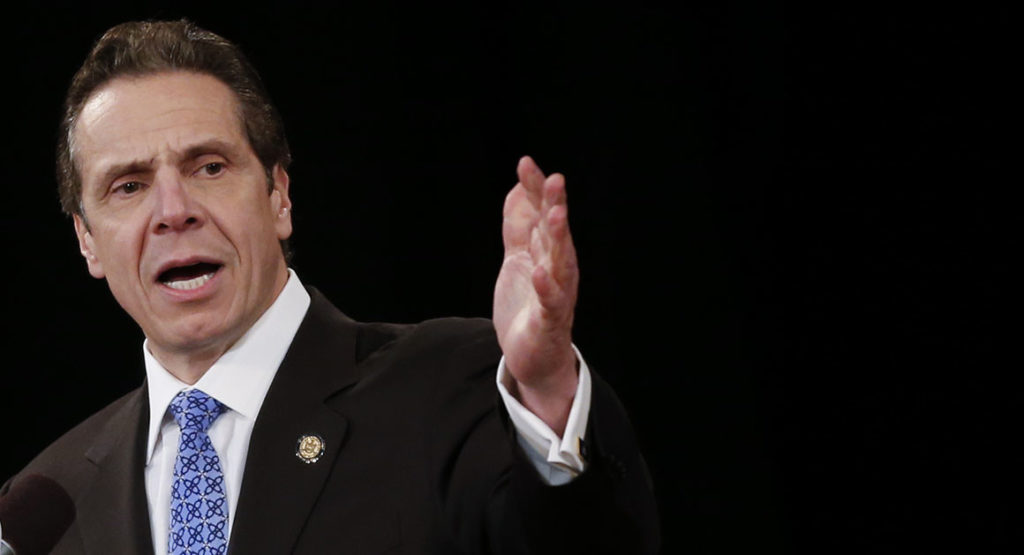
Two-term New York Gov. Andrew Cuomo sparked a firestorm when he criticized President Donald Trump and his famous and his “Make America Great Again” (MAGA) campaign slogan. “We’re not going to Make America Great Again,” Cuomo said in Manhattan Wednesday. “It was never that great. We have not reached greatness. We will reach greatness when every American is fully engaged.” Backlash quickly ensued as his remarks went viral online with Alabama politicians quickly jumping on the comment. They suggested Cuomo’s remarks were outrageous and that he should apologize. Here’s what Alabama politicians have to say about Cuomo’s remarks: Alabama 1st District U.S. Rep. Bradley Byrne | via Twitter “Governor Cuomo should tell those who survived the Depression and fought in World War II, like my dad, that America was never a great country. Frankly, he should apologize for such an outrageous comment.” Governor Cuomo should tell those who survived the Depression and fought in World War II, like my dad, that America was never a great country. Frankly, he should apologize for such an outrageous comment. https://t.co/krEtM5XyuA — Rep. Bradley Byrne (@RepByrne) August 16, 2018 Alabama 3rd District U.S. Rep. Mike Rogers | via Twitter “Not sure about New York, but here in Alabama we believe America is great and becoming even GREATER! #MAGA #ALPOLITICS.” Not sure about New York, but here in Alabama we believe America is great and becoming even GREATER! #MAGA #ALPOLITICShttps://t.co/7tFLNOJrj5 — Mike Rogers Campaign (@MikeRogersCamp) August 15, 2018 4th District U.S. Rep. Robert Aderholt | via Twitter “There is not a country on earth that has done more good for more people than America. This country most definitely has been great, and thanks to President Trump, we are going to be great again.” There is not a country on earth that has done more good for more people than America. This country most definitely has been great, and thanks to President Trump, we are going to be great again. https://t.co/f1CwKNzeUV — Rep. Robert Aderholt (@Robert_Aderholt) August 15, 2018 Terry Lathan | Chairman of the Alabama Republican Party “Hey @andrewcuomo I will pay for your air fare to Normandy, France if you will go to the beaches that the greatest generation stormed and say that America “never was that great”. Maybe you can stand by NY’s Theodore Roosevelt Jr’s grave and say it… #AndrewCuomo #alpolitics“ Hey @andrewcuomo I will pay for your air fare to Normandy, France if you will go to the beaches that the greatest generation stormed and say that America “never was that great”. Maybe you can stand by NY’s Theodore Roosevelt Jr’s grave and say it… #AndrewCuomo #alpolitics pic.twitter.com/RDiVjooPeg — Terry Lathan (@ChairmanLathan) August 16, 2018
Darryl Paulson: The Founders were right — democracy is flawed
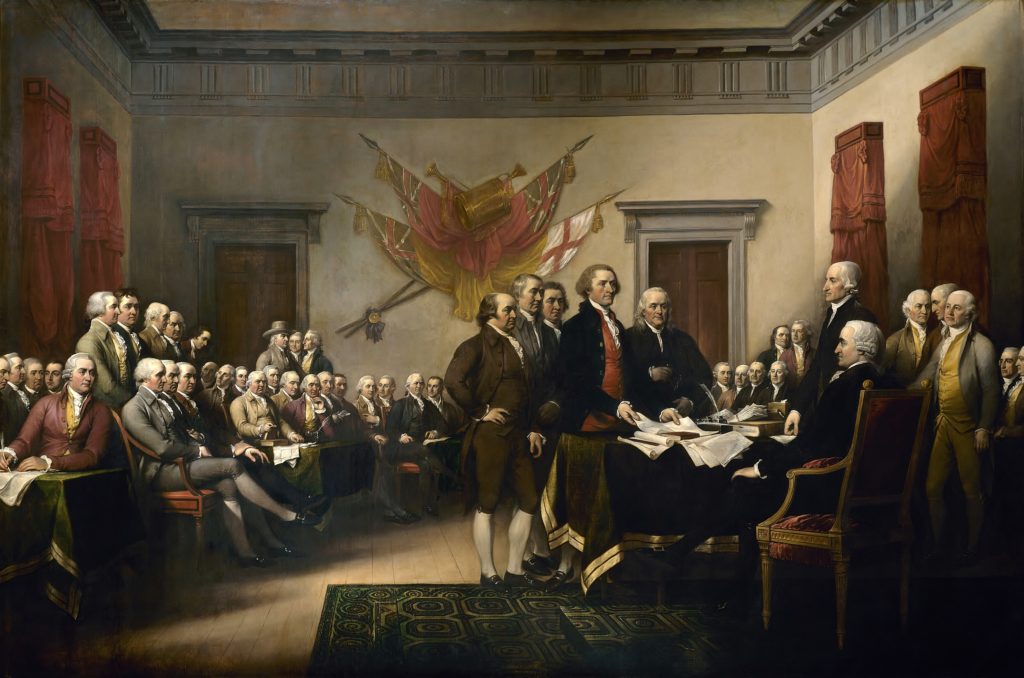
I expect the title of this op-ed will generate enough hate mail to keep me busy for a month. How can anyone oppose democracy? If the Founders hated democracy, who am I to disagree? The Founders recognized the inherent dangers of democratic government. Benjamin Rush, a signer of the Declaration of Independence, called democracy “one of the greatest evils.” Alexander Hamilton, better known for being a Broadway phenomena that one of the most significant individuals in the establishment of the United States of America, wrote that ancient democracies “never possessed one feature of good Government. Their very character was tyranny.” James Madison, one of the authors of the Federalist Papers, along with Hamilton, argued that there was nothing in a democracy “to check the inducements to sacrifice the weaker party or an obnoxious individual.” Over 200 years ago, Madison envisioned a future leader like Donald Trump. Madison, in Federalist # 10, wrote that democracies “have ever been spectacles of turbulence and contention; have been found incompatible with personal security or the rights of property; and have in general been as short-lived as they have been violent in their deaths.” Madison and most of the Founders believed republics were preferable to democracies because they protected against the tyranny of the majority. They created a system of indirect election of the president and checks and balances between the executive, legislative and judicial branches of government. Most Americans know that we pledge allegiance “to the flag of the United States of America and to the republic for which it stands,” and not to the “democracy for which it stands.” Critics of democracy claim that it is unstable and subject to frequent change. As a result, in 2017, 159 of the 206 sovereign states use “republic” as part of their name. 20th-century Italian political thinkers Vilfredo Pareto and Gaetano Mosca viewed democracies as an illusion. According to Pareto and Mosca, democracies portray themselves to be dominated by the rule of the people when, in reality, they are dominated by political elites due to the apathy of the masses. As Supreme Court Justice Louis Brandeis wrote a century ago, “We may have democracy, or we may have wealth concentrated in the hands of a few, but we can’t have both.” The 2016 election illustrates the limits of democracy. The normally sedate masses can be aroused by a leader who offers simple solutions to complex problems. Trump convinced enough voters that unless he was elected, America was at its end as a world power. Trump was also able to convince enough voters that he was the leader to transform America from its downward spiral and that he would “Make America Great Again.” As America’s political savior, Trump promised his political supporters that “I alone can fix it. I alone am your voice.” Many Americans are convinced that Trump is a new kind of leader who will restore America to greatness. I am more inclined to believe we have selected a false prophet who will lead America down a path of danger and destruction. ___ Darryl Paulson is Emeritus Professor of Government at USF St. Petersburg specializing in Florida politics and elections.
Daniel Sutter: What will make America great again?
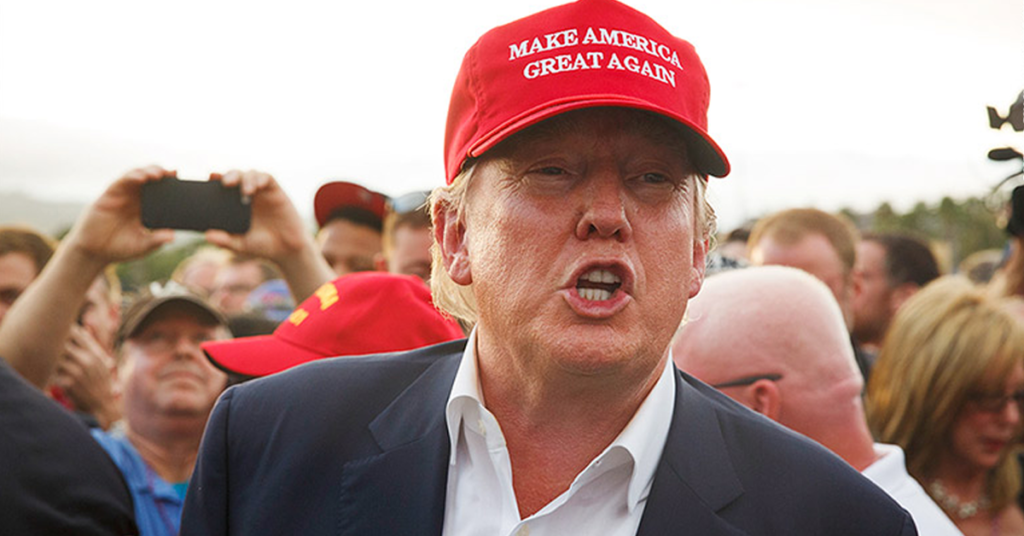
Donald Trump pulled off an historic upset to win the Presidency. How big of an upset? Betting markets in England offered 3-1 odds against him on Election Day. Nate Silver at Five Thirty Eight gave Hillary Clinton around a 70 percent chance to win, with many criticizing him for giving Mr. Trump too great of a chance. The Iowa Electronic Market, which is normally quite accurate, gave Ms. Clinton almost an 80 percent chance of winning. Mr. Trump’s campaign slogan was “Make America Great Again.” Now he must set about restoring America’s lost greatness. In looking to the past, we should remember that America, like every person and nation, has never been perfect. Our history includes slavery, Jim Crow segregation, and broken promises to and mistreatment of Native Americans. By taking the best of the past and omitting the regrettable things, we could make America greater than before. I think that renewing freedom, and specifically economic freedom, would make a great start. Freedom has been America’s distinctive element, the cause that led the colonists to take up arms against England. America’s founding documents offer great statements of the principle of liberty. We have lost ground on economic freedom. Canada’s Fraser Institute and Southern Methodist University’s O’Neil Center compile the Economic Freedom of the World (EFW) index annually. Economic freedom means the ability of individuals and businesses to engage in voluntary transactions and make decisions about their property and wealth. The index measures how closely a nation approaches the ideal of a market economy. The EFW index allows economists to test whether free markets and competition are truly indispensable for a prosperous economy. Studies using the EFW index have documented the link between free markets and prosperity. GDP per capita, how economists measure the standard of living, and growth in inflation-adjusted GDP per capita are both substantially higher in nations with more economic freedom. And economic freedom does not merely benefit the rich: the incomes of the poorest 10% are also much higher in the freest nations. The 2016 EFW ratings were released last month, and the United States ranked 16th, unchanged from the previous year. Currently the index rates 157 nations, so we make the top 10%. But between 1980 and 2000, the U.S. was one of the three freest nations in the world. Our economic freedom has declined notably. What can we do to increase economic freedom? The index measures freedom in five broad areas: the size of government (meaning tax rates and spending), legal structure and the enforcement of property rights, sound money, freedom for international trade, and regulation. Each component is evaluated using internationally available data. Our worst score, both absolutely and relatively, is in the size of government component, while we score highest in sound money and rank highest in regulation. Income tax rates are the size of government component with our lowest score. President-Elect Trump’s proposed tax cuts could be a first step toward increasing economic freedom. In addition, the U.S. has one of the highest corporate income tax rates in the developed world, even though many companies secure exemptions from the tax. Our corporate income tax combines high rates, which deter productive economic activity, and little revenue generation due to loop holes rewarding unproductive political lobbying. Regulation is another area ripe for improvement. We score well on labor market regulation because the U.S. does not penalize businesses for dismissing workers like many European nations do. But several recent policy measures have increased the cost of hiring. Two of note are the Affordable Care Act, which increased the cost of employee benefits, and the new overtime rule raising the annual earnings threshold for paying salaried workers. Economic freedom drives prosperity and creates opportunity for individuals to live their lives on their own terms. Restoring America’s leadership in economic freedom would be an important step toward delivering on President-Elect Trump’s campaign pledge. ••• Daniel Sutter is the Charles G. Koch Professor of Economics with the Manuel H. Johnson Center for Political Economy at Troy University and host of Econversations on TrojanVision. The Economic Freedom of the World report is available at www.freetheworld.com. The opinions expressed in this column are the author’s alone and do not necessarily reflect the views of Troy University.
For many voters, Donald Trump is a thing called hope
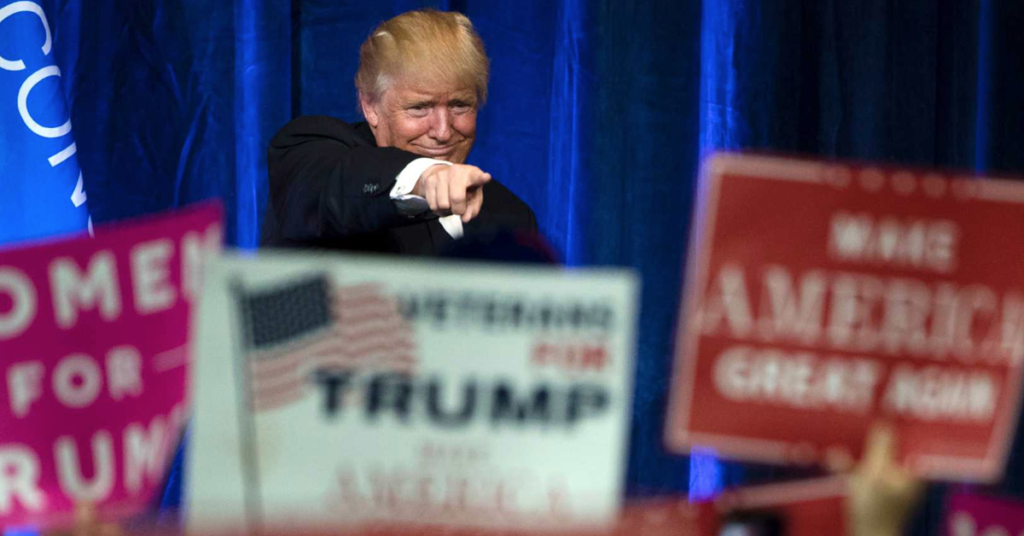
On election night, when Donald Trump claimed victory in her home state of Wisconsin, Shay Chamberlin was so excited she screamed and fell over. Chamberlain believes Trump is her savior, sent by God to save America from ruin. She owns a women’s clothing store in this modest town; her husband runs a construction company. They have two children and barely get by on $44,000 a year, living paycheck to paycheck. In his victory speech, Trump called people like Chamberlain and her family America’s “forgotten men and women” – the blue-collar workers in the manufacturing towns of the Rust Belt and the hollowing coalfields of Appalachia who propelled him to an improbable victory. They felt left behind by progress, laughed at by the elite, and so put their faith in the billionaire businessman with a sharp tongue and short temper who promised to Make America Great Again. When Trump first ran, Chamberlain thought to herself: “That’s the man everybody has been praying for.” And she now feels vindicated by his victory. “This is a movement,” she said. “This isn’t a candidate anymore. This is a movement.” Not all of Trump’s support came from the blue-collar downtrodden. But the Republican’s overwhelming backing among whites with less than a college education is at least partly a reflection of how little the economic recovery since the Great Recession has benefited them. Their job opportunities have dwindled and their incomes have fallen, even as broader measures of the nation’s job market show improvement. But they also turned to him to hold back the tide of social change: same-sex marriage, transgender rights, a society growing more racially diverse. The white working class, long ignored, found an unlikely spokesman in Trump. He promised to build the wall to keep out immigrants. He promised to tear up trade deals that have ushered American factory jobs overseas. He promised to put blue-collar America back to work and restore the country to a time when white workers felt appreciated and fulfilled. “I feel like, not just most, but all Trump supporters are true patriots,” said 59-year-old Ginger Austin, who owns a graphics company in a tiny town in Jones County, one of the poorest places in North Carolina. “They love this country. But they’re taking our country away, and they’re changing it. They’re just changing everything. All our rights are just slowly being dwindled away.” She’s angry at the Republican Party she has supported all her life. She is angry at Barack Obama and the Affordable Care Act. She is angry that America is changing, and worried that her grandchildren are growing up in a world too liberal and too politically correct. The nation awoke Wednesday morning to learn just how starkly divided it has grown: Hillary Clinton won the popular vote by less than 200,000 ballots. But Trump won battleground states that had voted for Obama twice. Thousands of registered Democrats, including many former union workers from the mines and factories, crossed party lines and sided with Trump. For example, in Dunn County, where Shay Chamberlin lives, Obama beat Mitt Romney 53 percent to 46 percent in 2012, and John McCain 57 percent to 42 percent four years earlier. But it flipped to back Donald Trump, 52 percent to 41 percent, over Clinton. Scott Hiltgen, a 66-year-old small business owner in Wisconsin, called Washington a “cesspool” of career politicians, aware of and indifferent to the plight of the American worker. “We are considered flyover country, as you well know, and they don’t care about us,” he said. “And I think it was the silent majority that finally said, ‘Enough’s enough. We want a change. We don’t like the way things are going.’” Middle-aged white men with only high school degrees – the core of Trump’s support – saw their inflation-adjusted incomes plummet 9 percent from 1996 through 2014, according to Sentier Research, a data analytics firm founded by former Census Bureau officials. White male college graduates in the same age bracket, by contrast, saw their incomes jump 23 percent. The Great Recession wiped out millions of middle-income jobs in manufacturing, office administrative work and construction, and those jobs haven’t returned, even as the nation now has 6.5 million more jobs than it did before the recession began. In many parts of the country, they have been replaced with lower-income work in restaurants, hotels, and in home health care. This “hollowing out” of the nation’s economy has left many Americans with high school degrees feeling shut out of the middle class. Jerry Blackburn, a retired county official in rural Virginia, said he feels like people from someplace else took all they could from him and his neighbors and then left them with nothing. “They took our coal out of here and everybody got rich on it. And what did we get?” he asked. “We got black lung. We don’t have good water to drink, we don’t have roads, we don’t have anything except a bunch of broken down old coal miners that’s forgotten. But everybody else got rich on us.” On Wednesday morning, miners streamed into a convenience store on a highway between one struggling, West Virginia coal town and another. From behind the counter, manager Mary Jones recognized something she hadn’t heard in years: hope. They talked about jobs returning to this broken-down county. They talked about a chance at a brighter future. They talked about Donald Trump. “I think we sent a message to Washington that we’re tired of them sitting up there doing nothing to help the working-class people,” said Jones, a native of Wyoming County, where the collapse of the coal industry has left behind a string of tumbledown houses and a quarter of families in poverty. Coal trucks used to barrel by all day and the parking lot stayed full. No trucks come by anymore. The store is for sale. She’s not sure she’ll have a job much longer and is certain she won’t find another. They struggle to make enough money to pay
Donald Trump camp calls KKK newspaper ‘repulsive’ after praise
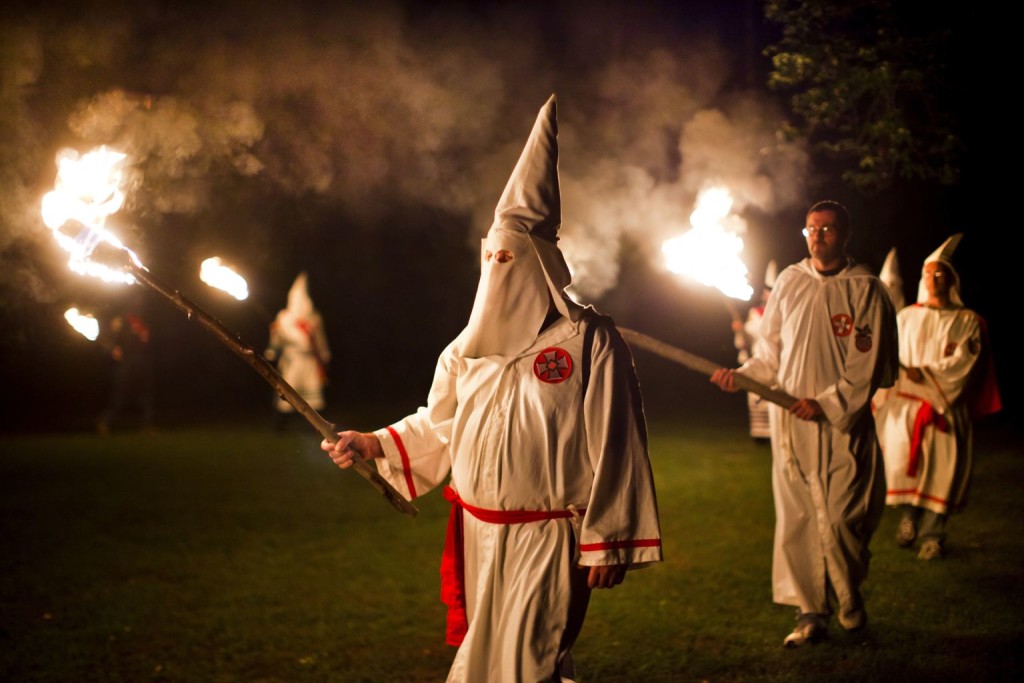
Donald Trump‘s campaign is firmly rejecting the embrace of a Ku Klux Klan-affiliated newspaper. The latest issue of The Crusader used Trump’s “Make America Great Again” campaign slogan as its headline for an editorial praising the catchphrase and the Republican presidential candidate. The newspaper bills itself as “The Premier Voice of the White Resistance.” The newspaper didn’t specifically call for readers to vote for Trump. In a statement, the Trump campaign calls the newspaper “repulsive.” It said its “views do not represent the tens of millions of Americans who are uniting behind our campaign.” Trump had been criticized earlier in the campaign for failing to immediately denounce the endorsement of David Duke, a former Grand Wizard of the Ku Klux Klan. Republished with permission of the Associated Press.
Donald Trump’s campaign investment tops $43 million

Donald Trump poured more than $7.5 million of his own money into his presidential campaign in April, bringing his total personal investment to more than $43 million since he declared his candidacy, new campaign finance reports filed late Friday show. The billionaire businessman, who swatted away 16 Republican rivals and relied heavily on wall-to-wall media coverage of his outsized personality and often inflammatory remarks, reported spending about $56 million during the primary, which lasted until his final two rivals, Texas Sen. Ted Cruz and Ohio Gov. John Kasich, dropped out of the race at the beginning of May. In April alone, Trump spent nearly $9.4 million, according to his monthly filing with the Federal Election Commission. Trump’s largest expense in April, about $2.6 million, was for advertisements. The campaign also spent more than $930,000 on direct mail. Other big-ticket items included roughly $585,000 in airfare paid to Trump’s TAG Air Inc. While much of Trump’s money has come from his own pocket, he reported about $1.7 million in donations last month. Those contributions have come largely from people buying Trump’s campaign merchandise, including the red “Make America Great Again” ball caps, and giving online through his campaign website. Trump didn’t begin developing a team of fundraisers until recently, after he became the presumptive GOP nominee. Almost all of Trump’s personal investment has come in the form of loans. That leaves open the possibility that he can repay himself now that he’s aggressively seeking donations. A new fundraising agreement he struck with the Republican National Committee and 11 state parties explicitly seeks contributions for his primary campaign. Yet Trump said in a statement this week that he has “absolutely no intention” of paying himself back. Instead, he will be able to use any primary money he raises, in increments of up to $2,700 per donor, on expenses such as salaries, advertising and voter outreach over the next nine weeks. After the GOP convention in late July, Trump will officially become the nominee and be restricted to spending money that’s earmarked for the general election. His likely rival, Democrat Hillary Clinton, has a head start on building a war chest for the November election. She partnered with Democratic parties months ago and has been raising millions of dollars for them. In April alone, she collected almost $800,000 in campaign money for the general election. By contrast, Trump will hold his first campaign fundraiser next week, an event in Los Angeles where the minimum price of admission is $25,000, according to the invitation. Those donations are to be split among Trump’s campaign and his Republican Party allies. In addition to the Trump campaign’s financial health, the filings also show that when Cruz dropped out, money wasn’t the issue: He had $9.4 million in his campaign coffers at the end of April, just days before his defeat May 3 in the Indiana primary prompted him to end his bid. At the time, Cruz said he left the race because he saw no path forward. Republished with permission of The Associated Press.
Outside groups backing Ted Cruz land big checks in January

The six Republican presidential candidates and two Democratic contenders are due to report on the financial health of their campaigns by midnight Saturday. With Republicans voting in South Carolina and Democrats caucusing in Nevada, the reports on fundraising and spending in January provide a glimpse of who has been thinking ahead in the primary calendar. Most of the outside groups known as super political action committees also must report to the Federal Election Commission by midnight Saturday. Here’s what we know: CRUZ NETWORK GROWS Texas Sen. Ted Cruz has the biggest network of outside groups helping him out — more than half a dozen. A super PAC called Courageous Conservatives has stood out for employing some of the most aggressive tactics, even though it isn’t the best-funded of those pro-Cruz groups. In the lead-up to the South Carolina vote, Courageous Conservatives made thousands of automated phone calls bashing Donald Trump, who has consistently led polls in the state. So who’s paying for all this? The group’s January fundraising report shows it has two donors: Stan Herzog, a Missouri builder, and Christopher Ekstrom, a Dallas investor. Herzog, who gave $60,000 last month, is a seasoned super PAC donor, having put up more than $1 million to back 2012 GOP nominee Mitt Romney. Ekstrom has a relatively short history as a political donor: His $34,500 contribution to Courageous Conservatives last month appears to be his biggest ever. A far better funded pro-Cruz group, Stand for Truth, also filed a January fundraising report. That super PAC raised about $2.5 million in January. Its biggest contributor, Trinity Equity, gave more than $1 million. Corporate records show the Houston company shares an address with Quantum Energy Partners, a private equity firm run by Wil VanLoh, who has given the maximum legal amount to Cruz’s presidential campaign, $5,400. Stand for Truth’s FEC documents show the super PAC spent much of its money on South Carolina advertisements knocking Cruz rival Marco Rubio, a Florida senator. ___ TRUMP TAKEDOWN? NOT SO MUCH A super PAC claiming it would try to take down Trump has not really gotten off the ground. Make America Awesome — a riff on Trump’s “Make America Great Again” slogan — raised just $8,640 in January. That followed a disappointing December, when it raised just $1,711. The super PAC is led by Republican strategist and outspoken Trump antagonist Liz Mair. Perhaps because of its underwhelming funding, the super PAC has done just a few digital ads knocking the celebrity businessman. Republished with permission of the Associated Press.
Super PACs dole out cash, whether candidates like it or not
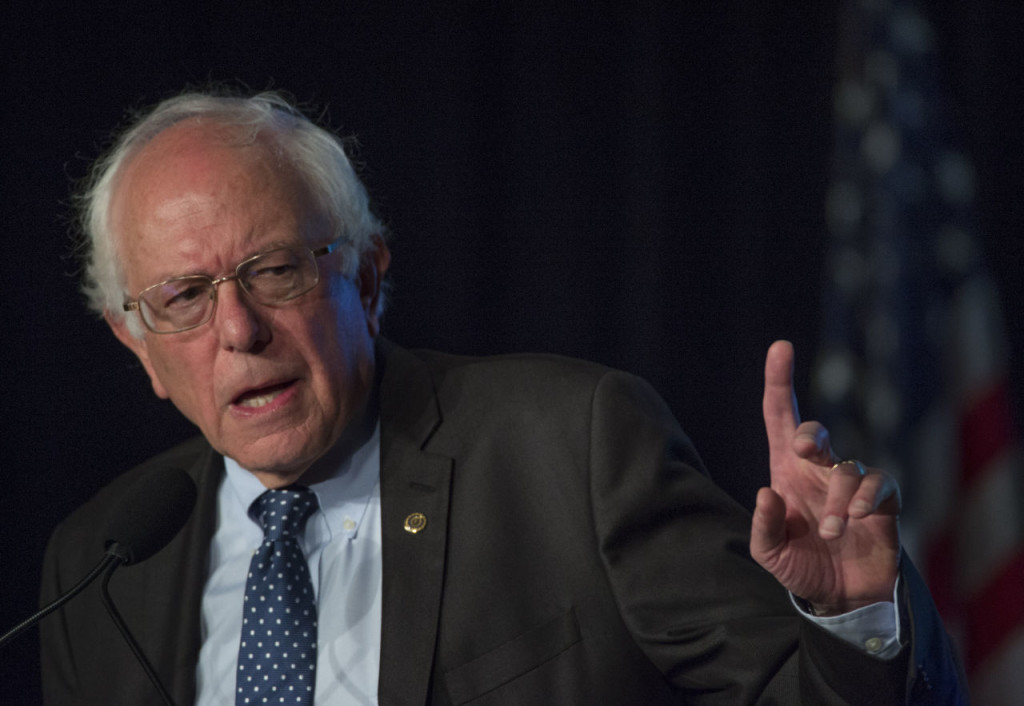
Donald Trump calls them a “crooked business.” Bernie Sanders says they’re “corrupt” organizations “buying elections.” But the barrage of insults hasn’t stopped the political groups known as super PACs and their donors from showing the two presidential candidates some love — no matter how loudly they may rail against their very existence. “I’m not going to be deterred just by that alone,” said Joshua Grossman, president of Progressive Kick, of Sanders’ anti-super PAC message. His liberal super PAC, funded by donors who have written checks as large as $250,000, has endorsed Sanders and is planning to spend money helping to elect him. Unlike formal campaigns for president, super PACs are allowed by law to accept donations of any size. That fact makes them a juicy political target for populist candidates such as Trump and Sanders. Yet already, a super PAC allied with a nurses’ union that endorsed Sanders over Democratic front-runner Hillary Clinton in August has put more than $600,000 into pro-Sanders digital and print ads in the important early primary states of Iowa, New Hampshire, South Carolina and Nevada. Billboards put up by the super PAC, National Nurses United for Patient Protection, proclaim: “Politics As Usual Won’t Guarantee Healthcare For All. Bernie Will.” The union is only able to spend that kind of money because of the 2010 Supreme Court ruling known as Citizens United, a decision that ultimately led to the creation of super PACs. Sanders has decried it as corrosive to democracy. That ruling also enabled unions to start spending member dues on political advertising in federal elections. Since that time, the nurses’ union has moved $3.4 million in dues into its super PAC, according to records filed with the Federal Election Commission. The group hasn’t raised money from anyone else. “Anti-labor folks might say that these unions are extorting money from their dues-paying members to use on politics, whether those members like it or not,” said Paul S. Ryan, senior counsel at the Campaign Legal Center in Washington, which advocates for stricter campaign finance rules. RoseAnn DeMoro, the union’s executive director, said the super PAC has helped other candidates in previous elections and is assisting Sanders’ bid because “we’ve never seen a better messenger” for causes important to the union’s members, citing as an example his plan to expand Medicare. “We are hoping to do as much as we can for him,” she said. “The nurses are extremely happy with what we’ve done with their money. He’s a vehicle for our voice. We laugh quietly among ourselves and say, ‘Bernie stole our issues.’” The nurses’ early endorsement was seen as a political victory for Sanders, who filmed a five-minute video thanking the group’s 185,000 members for their support. Nearly three months later, Sanders and his aides defended the group as “good” big money, drawing a contrast with the wealthy corporate donors he frequently vilifies on the campaign trail. “They are nurses and they are fighting for the health care of their people,” Sanders said in an interview last week on CNN. “They are doing what they think is appropriate. I do not have a super PAC.” Sanders has sought to distinguish himself from Clinton on the issue of big money. While both say they’d like to limit money in politics by rolling back the Citizens United court ruling, Clinton deployed close aides to a super PAC that aims to at least triple the $80 million it raised to support President Barack Obama‘s re-election. That group, Priorities USA, already has a half-dozen $1 million contributors. Sanders has not authorized any similar effort. In fact, in June, Sanders’ campaign attorney sent a cease-and-desist letter to a strategist who set up a “pro-Sanders” super PAC going by several names, including Bet on Bernie and Americans Socially United. Cary Lee Peterson, the man who set up the group, has credit and legal problems in several states, an investigation by the Center for Public Integrity found. A campaign finance report the group filed seven weeks late showed it was $50,000 in debt as of the end of June. The group is continuing to solicit money online. On the other side of the aisle, Trump accuses his opponents of being controlled by the super PACs backing their bids — even calling some “puppets” of their donors. But super PACs can’t seem to quit Trump. At one point his campaign identified nine that appeared to be raising money in the name of helping him. One, called Patriots for Trump, purchased Iowa and New Hampshire voter contact information as recently as late October, FEC records show. Trump himself attended a several events for a group called Make America Great Again — his slogan. In October, The Washington Post reported on ties between the leader of Make America Great Again and Trump’s own aides. Soon after, Trump asked the group to shut down, and they appeared to do so. At the same time, his campaign sent cease-and-desist letters to other supposedly pro-Trump super PACs, and he ramped up his anti-super-PAC rhetoric. Many seem to have stopped raising money. One group, called Let’s Trump Politics, remains operational — at least online. It formed in late September, according to the FEC, and hasn’t yet had to file any fundraising information. The group’s website includes a headline about how “Republicans support political outsiders” — and a disclaimer that its mission is “in no way a direct relation to Donald Trump or his 2016 presidential campaign.” Republished with permission of the Associated Press.

